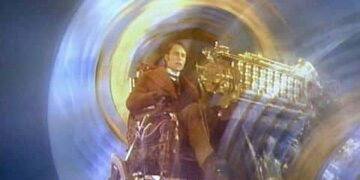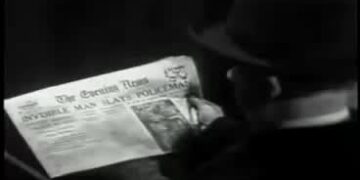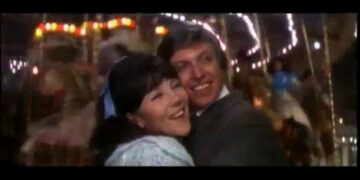H.G. Wells, a renowned English writer, is widely recognized for his contributions to science fiction and his ability to captivate readers with his imaginative storytelling. Born on September 21, 1866, in Bromley, Kent, Wells’s early life laid the foundation for his literary pursuits. Growing up in a working-class family, he faced financial challenges, but his passion for knowledge and writing propelled him to overcome obstacles and leave an indelible mark on the literary world.
H.G. Wells’s Early Life and Upbringing
Wells’s childhood was marked by hardships and limited resources. His father, Joseph Wells, worked as a shopkeeper and struggled to provide for the family. Despite the financial constraints, young Wells found solace in books and used his vivid imagination to explore worlds beyond his own. He was a voracious reader and took advantage of the local library, which fueled his desire to become a writer.
Exploring H.G. Wells’s Writing Career
Wells’s writing career took off with his debut novel, “The Time Machine,” published in 1895. This groundbreaking work introduced the concept of time travel and established Wells as a pioneer in the science fiction genre. His subsequent novels, such as “The War of the Worlds” and “The Invisible Man,” further solidified his reputation as a master storyteller. Wells’s ability to blend social commentary with thrilling narratives made him a literary force to be reckoned with.
The Influence of Backbiting and Gossip in Wells’s Life
Like many prominent figures, Wells was not immune to the effects of backbiting and gossip. Throughout his career, he faced criticism and scrutiny from both the literary community and the public. His unconventional personal life, including his multiple marriages and affairs, often became fodder for tabloid newspapers and fueled the gossip mill. Despite these challenges, Wells remained resilient and focused on his writing, using the negativity as fuel for his creative endeavors.
Criticism Faced by H.G. Wells During His Career
As a prolific writer and a prominent figure in the literary world, H.G. Wells faced his fair share of criticism. Some critics dismissed his works as mere escapism, failing to recognize the depth and social commentary present in his stories. Others accused him of lacking literary finesse, claiming that his writing style was too simplistic. However, these criticisms did not deter Wells, who believed in the power of his ideas and continued to push boundaries with his storytelling.
Unveiling H.G. Wells’s Love Life and Friendships
Wells’s personal life was as intriguing as his literary creations. He had multiple marriages and relationships throughout his life, each leaving a significant impact on his work. His most notable relationship was with writer Rebecca West, with whom he had a passionate affair and a child. Wells also formed friendships with influential figures such as George Bernard Shaw and Joseph Conrad, engaging in intellectual discussions that further shaped his worldview.
H.G. Wells’s Life Outside of Writing
While H.G. Wells is primarily known for his literary contributions, he led a multifaceted life beyond writing. An advocate for social change, he actively participated in political activities and championed causes such as women’s rights and socialism. Wells’s involvement in these movements reflected his desire to create a better world, both through his storytelling and his real-life actions.
The Financial Status of H.G. Wells – Rich or Poor?
Contrary to popular belief, H.G. Wells did not accumulate significant wealth from his writing alone. Despite his success as an author, Wells faced financial struggles throughout his life. He relied on advances from publishers and often lived beyond his means. The financial instability did not deter his creativity, but it did add a layer of complexity to his personal and professional life.
Memorable Quotes by H.G. Wells
H.G. Wells’s works are filled with memorable quotes that resonate with readers even today. From thought-provoking reflections on the human condition to poignant observations about society, his words continue to inspire and provoke contemplation. One of his most famous quotes, “We all have our time machines, don’t we? Those that take us back are memories… And those that carry us forward, are dreams,” encapsulates his fascination with time and the power of imagination.
The Main Settings in H.G. Wells’s Books
H.G. Wells’s books transport readers to various captivating settings. From the war-ravaged landscapes of “The War of the Worlds” to the dystopian future of “The Time Machine,” each setting serves as a backdrop for exploring profound ideas and societal issues. Wells’s ability to vividly describe these locations and make them come alive on the pages of his books is a testament to his skill as a writer.
Must-Read Books by H.G. Wells
For those looking to delve into the world of H.G. Wells, there are several must-read books that showcase his talent and influence. “The War of the Worlds” remains a classic, with its gripping narrative and allegorical commentary on British imperialism. “The Invisible Man” explores themes of power and morality, while “The Island of Dr. Moreau” delves into the boundaries of science and ethics. These books, among others, offer a comprehensive introduction to Wells’s imaginative and thought-provoking storytelling.
The First and Last Book Written by H.G. Wells
H.G. Wells’s first published book, as mentioned earlier, was “The Time Machine.” This groundbreaking work set the stage for his future success and established him as a pioneer in the science fiction genre. On the other end of his career, “Mind at the End of Its Tether” served as Wells’s final book, published in 1945. This introspective work explores themes of humanity’s decline and the uncertainties of a post-war world.
The Screen Adaptation of “The First Men in the Moon 1901”
One of H.G. Wells’s notable works, “The First Men in the Moon,” received a screen adaptation in 1901. This silent film, directed by Walter R. Booth, brought Wells’s imaginative tale to life on the big screen. Although the film adaptation differs from the original story in some aspects, it remains a testament to the enduring appeal of Wells’s work and its adaptation into different media forms.
Artists Who Inspired H.G. Wells
H.G. Wells drew inspiration from various artists and thinkers who shaped his worldview and influenced his writing. One such artist was Jules Verne, a French writer known for his adventure novels and scientific imagination. Wells also admired the works of H.G. Wells, whose exploration of the human psyche resonated with him. These artists, among others, left an indelible mark on Wells’s creative process, contributing to the depth and richness of his storytelling.
Other Writers Recommended for H.G. Wells Fans
For fans of H.G. Wells, there is a wealth of literature waiting to be explored. Authors such as George Orwell, Aldous Huxley, and Isaac Asimov share similar themes and ideas prevalent in Wells’s works. Their stories delve into dystopian societies, social commentary, and scientific advancements, offering readers a chance to further immerse themselves in the genre that Wells helped shape.
Conclusion: H.G. Wells’s Enduring Legacy
H.G. Wells’s contributions to literature and his impact on the science fiction genre cannot be overstated. His imaginative storytelling, social commentary, and ability to foresee future advancements have cemented his place as one of the most influential writers of his time. Wells’s enduring legacy continues to captivate readers and inspire generations to explore the extraordinary possibilities of the human imagination.
Fuel our passion by treating us to a coffee or enrich your collection with the captivating books of H. G. Wells on Amazon through this link.
Join the WFTS revolution and champion the enduring allure of books with us! We’re committed to keeping your experience ad-free and authentically engaging.
Step into our world, where we value substance over flash, and keep the magic of books alive.














